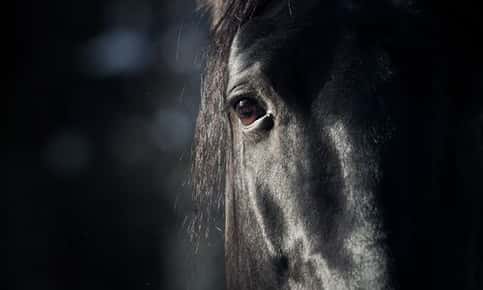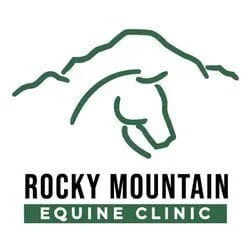
Understanding Your Horse's Night Vision
Have you ever wondered how your horse can navigate around obstacles in the dark with few problems? Anatomical differences in the equine eye give your horse the impressive ability to see well in low light.
What Your Horse Sees
Your horse doesn't view the world quite the same way you do. Differences in the size, placement, and structures of your horse's eyes make some visual tasks harder and others much easier.
Horses have almost 360-degree vision due to the placement of the eyes on either side of the head. The eye placement allows your horse to scan large areas and spot predators and other dangers. Although your horse does have a panoramic view of the world, it has blind spots directly behind and in front of the head.
While a wider field of vision offers many advantages, eye placement makes binocular vision a challenge in horses. Good binocular vision relies on both eyes seeing nearly identical images. Although your horse has good vision in each eye, its binocular vision isn't as sharp as yours because the eyes are so far apart. Turning or lifting the head improves binocular vision, eliminates blind spots and helps fuzzy images come into focus.
Horses Have Natural Night Vision Abilities
The retina, a layer of light-sensing cells that lines the back of eyes, contains two types of specialized cells that respond to varying levels of light. The cones are responsible for central and color vision and work best when your eye receives plenty of light. Cones in the human retina are located in the center of the retina, while your horse's cones are scattered throughout the retina.
Rods help you see better at dusk or in dimly lit rooms and are activated by low light. Horses have more rods than cones in their retinas and many more rods than humans do.
Have you noticed that your horse's eyes glow at night? The glow comes from the tapetum lucidum, a layer of reflective tissue behind the retina. The tapetum lucidum reflects light back into the retina, enhancing night vision. Thanks to the larger numbers of rods and the tapetum lucidum, your horse has superior night vision.
Galloping at full speed through the woods and pastures is no problem for equines. In fact, they see nearly as well in the dark as they do during the day. Your horse can handle night rides with ease, but they still pose problems for you. If you fail to spot an overhanging branch, you could suddenly be ejected from your saddle or experience cuts, bruises, broken bones, or head injuries.
Although your horse sees very well in the dark, its eyes don't adjust quickly when entering or leaving dark or brightly lit spaces. If your horse is reluctant to walk into your barn after spending time outdoors in the dark, you may need to allow a few minutes for the adjustment. Once your horse can see well again and feels confident, it will probably head straight for its stall.
Continue to care for your horse and its eyes so it can enjoy night vision for years to come.
Sources:
The Horse: Shedding Light on Equine Night Vision, 10/1209
Irish Sport Horse Magazine: Can Horses See In the Dark?, 8/21/19
